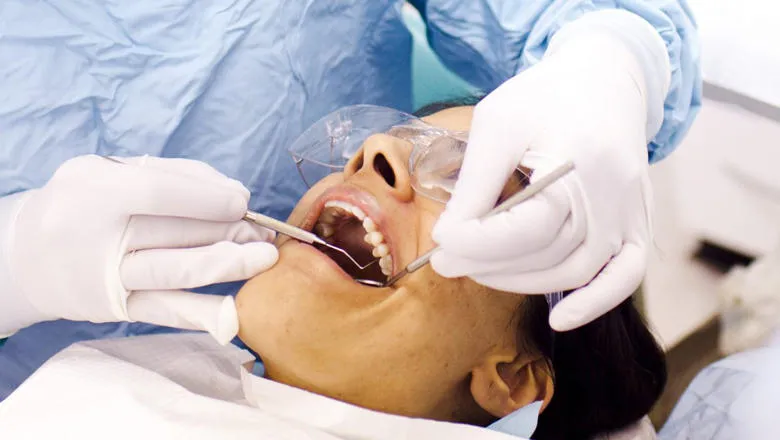
Cognitive behavioural therapy can help people overcome their fear of the dentist
In 2008, psychologists working with dental patients at King’s College London developed the UK’s first dedicated cognitive...
06 March 2018
Researchers at the Faculty of Dentistry, Oral & Craniofacial Sciences are working to understand the wide ranging causes and impact of erosive tooth wear, in order to improve advice and treatment for patients.
Researchers at the Faculty of Dentistry, Oral & Craniofacial Sciences are working to understand the wide ranging causes and impact of erosive tooth wear, in order to improve advice and treatment for patients.
A special edition of the British Dental Journal, edited by Professor David Bartlett, provides an update of the current research from around the globe surrounding this important topic.
Dr. Saoirse O’Toole was the lead author of a paper looking at the impact of an acidic diet on erosive tooth wear. The paper found that it’s not just what you eat and drink, but how you eat and drink, that increases your chances of developing the condition.
Eating and drinking acidic food and drinks, particularly between meals, was found to carry the greatest risk. Those who consumed acidic drinks, such as soft drinks, water with a slice of lemon, or hot fruit flavoured teas twice a day between meals were more than 11 times more likely to have moderate or severe tooth erosion. This figure was halved when drinks were consumed with meals.
The study also found that sugar-free soft drinks are as erosive as sugar-sweetened ones and that sipping, swishing, holding or rinsing drinks in the mouth prior to swallowing increases the risk of tooth erosion.
Dr O’Toole commented: ‘With the prevalence of erosive tooth wear increasing, it is important that we address this preventable aspect of erosive tooth wear. Reducing dietary acid intake can be key to delaying progression of tooth erosion. While behaviour change can be difficult to achieve, specific, targeted behavioural interventions may prove successful.’
Another new paper published in the British Dental Journal by researchers at King’s suggested that dentists can play a key role in the detection of health conditions including anorexia nervosa, bulimia and Gastro-Oesophageal Reflux Disease (GORD).
Many of these conditions result in the very specific erosion of tooth enamel and can have serious consequences if left undiagnosed or untreated. Researchers recommend that dentists be aware of the oral signs of eating disorders, which include the erosion of the insides of the upper front teeth facing towards the roof of the mouth, as well as the physical and psychological indicators of the conditions.
Lead author Dr Rebecca Moazzez, Reader and Consultant in Restorative Dentistry said: ‘There is a clear benefit to patients of the dental team being able to pick up on the early signs of conditions such as eating disorders or acid reflux, which may appear very subtle and difficult to detect.
‘Dental examinations should include the possibility of detecting signs of GORD and eating disorders, and if detected, appropriate referral and liaison with medical professionals instigated, leading to better outcomes for the patient.’
Interested in studying dentistry at King’s? Find out more here.